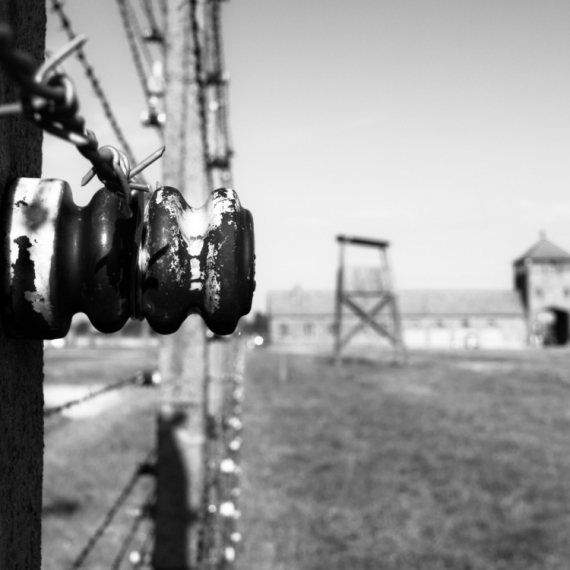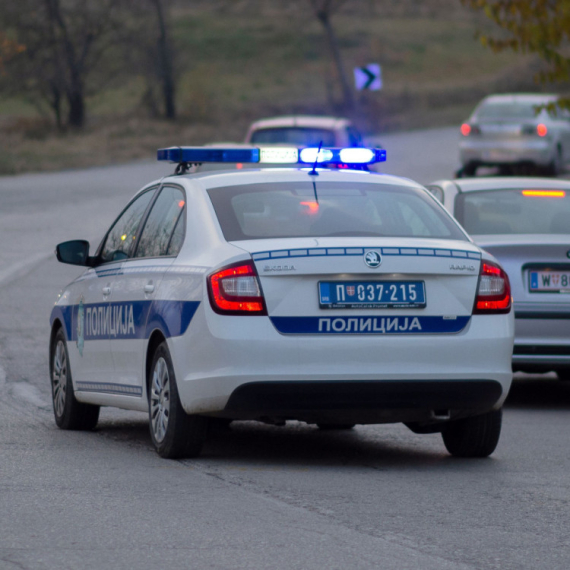Swine flu risk "still low" after death
Health officials have insisted the risk swine flu poses to the public remains low after the virus claimed its first UK victim and its first in Europe.
Monday, 15.06.2009.
09:47

Health officials have insisted the risk swine flu poses to the public remains low after the virus claimed its first UK victim and its first in Europe. The Scottish Government confirmed on Sunday a patient with underlying health problems had died after testing positive for the H1N1 virus. Swine flu risk "still low" after death The victim is understood to be a 38-year-old woman who gave birth prematurely at a hospital in Paisley. Health experts say her death does not mean the virus is "getting nastier". The death is the first outside the Americas, where more than 140 people have died since the pandemic began. The World Health Organization declared a pandemic last week following a sharp increase in the number of cases in Australia. Swine flu has now infected almost 500 people in Scotland alone, out of 1,261 cases in the UK. A statement issued by the Scottish Government on Sunday said: "With regret, we can confirm that one of the patients who had been in hospital, and had been confirmed as suffering from the H1N1 virus, has died today. "The patient had underlying health conditions." Scottish Health Secretary Nicola Sturgeon sent her "heartfelt sympathy" to the patient's family. But she added that the vast majority of those who had tested positive for swine flu had suffered from "relatively mild symptoms". The BBC's medical correspondent Fergus Walsh explained that swine flu presented a slightly higher risk to those with existing respiratory illness, asthma, cardiovascular disease and to pregnant women. Virologist Professor John Oxford said that despite the death, the public should not panic. "I still think the chances of picking up the virus are remote. It is not going to get any worse during the summer," he said. He later told the BBC that although there was expected to be a rise in the number of cases in the autumn, measures were already in place. "Britain is the most prepared country in the world," he said. Professor Hugh Pennington, a bacteriologist at Aberdeen University, said the death was sad but was "to be expected". "It does not point to the virus getting nastier. All the evidence to date suggests the virus is not changing at all. "This is a flu virus, it is in no way different from an ordinary winter flu virus, so if there are enough cases some people will have to be admitted to hospital and some will die." He added that the existence of underlying health problems meant it was "more likely" a patient would get the serious form of the virus. In the UK, the government now accepts that what it terms "sustained community transmission" is now taking place. The government estimates that the UK has enough anti-viral drugs for 50% of the population but has plans to raise that figure to 80%. Ministers urged people not to alter their normal behaviour and follow hand hygiene guidelines.
Swine flu risk "still low" after death
The victim is understood to be a 38-year-old woman who gave birth prematurely at a hospital in Paisley.Health experts say her death does not mean the virus is "getting nastier".
The death is the first outside the Americas, where more than 140 people have died since the pandemic began.
The World Health Organization declared a pandemic last week following a sharp increase in the number of cases in Australia.
Swine flu has now infected almost 500 people in Scotland alone, out of 1,261 cases in the UK.
A statement issued by the Scottish Government on Sunday said: "With regret, we can confirm that one of the patients who had been in hospital, and had been confirmed as suffering from the H1N1 virus, has died today.
"The patient had underlying health conditions."
Scottish Health Secretary Nicola Sturgeon sent her "heartfelt sympathy" to the patient's family.
But she added that the vast majority of those who had tested positive for swine flu had suffered from "relatively mild symptoms".
The BBC's medical correspondent Fergus Walsh explained that swine flu presented a slightly higher risk to those with existing respiratory illness, asthma, cardiovascular disease and to pregnant women.
Virologist Professor John Oxford said that despite the death, the public should not panic.
"I still think the chances of picking up the virus are remote. It is not going to get any worse during the summer," he said.
He later told the BBC that although there was expected to be a rise in the number of cases in the autumn, measures were already in place.
"Britain is the most prepared country in the world," he said.
Professor Hugh Pennington, a bacteriologist at Aberdeen University, said the death was sad but was "to be expected".
"It does not point to the virus getting nastier. All the evidence to date suggests the virus is not changing at all.
"This is a flu virus, it is in no way different from an ordinary winter flu virus, so if there are enough cases some people will have to be admitted to hospital and some will die."
He added that the existence of underlying health problems meant it was "more likely" a patient would get the serious form of the virus.
In the UK, the government now accepts that what it terms "sustained community transmission" is now taking place.
The government estimates that the UK has enough anti-viral drugs for 50% of the population but has plans to raise that figure to 80%.
Ministers urged people not to alter their normal behaviour and follow hand hygiene guidelines.



























































Komentari 0